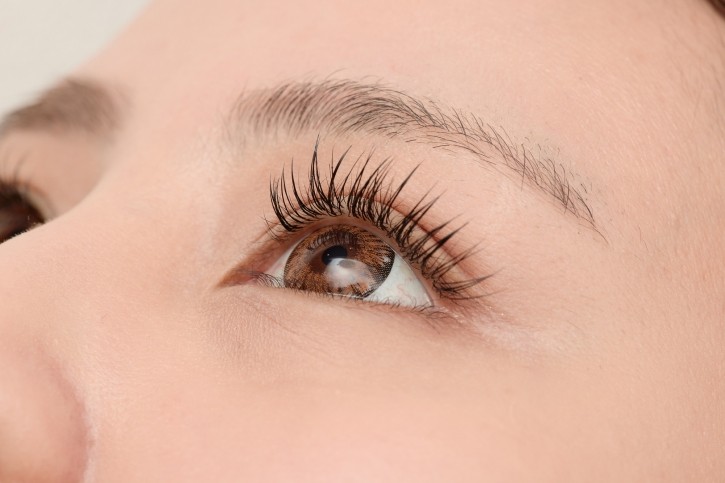Review deems Bimatoprost 'most effective' prostaglandin-type lash serum

A review published in the Journal of Cosmetic Dermatology discusses the pros and cons of popular eyelash serums. Bimatoprost, a prostaglandin-type serum, was found to be most effective, and is the only FDA-approved product in this study.
Other prostaglandin ingredients and non-prostaglandins showed benefits, but the authors state not enough research exists yet to declare safety. Due to the fact that there are no FDA efficacy or safety requirements in the United States for eyelash serums, the authors state a compilation and evaluation of ingredient effectiveness was warranted.
According to the authors, “analyst projections indicate that the eyelash serum market size will reach a value of $1.3 billion by 2031, up from $752 million in 2020.” Serums on the market range in terms of their effectiveness, mechanism of action and side effects. “A complete understanding of available options will help dermatologists recommend the most effective patient-specific eyelash serums and allow patients to avoid unnecessary and damaging complications.”
Prostaglandins and eye health
In the ophthalmic disease sphere, prostaglandin analogs are used to treat conditions such as glaucoma and ocular hypertension. Following the application of the analogs for these conditions, it was found they increased hair growth, leading to exploration of them for conditions like alopecia and hypotrichosis.
Eyelashes have a three-phase life cycle: anagen, catagen and telogen. Prostaglandin helps to lengthen the time of anagen, or the growing phase, and also shortens the amount of time between telogen, the resting phase, and anagen beginning again.
Bimatoprost
The authors classified Bimatoprost as Grade A. It also darkens eyelashes by increasing pigmentation and enlarges dermal papilla and hair bulb, making eyelashes thicker.
The most common side effect for bimatoprost, mainly used to treat eyelash loss following chemotherapy or alopecia, is conjunctival hyperemia. Some studies found pigmentation of the iris can occur, particularly for light-eyed people. Other side effects include prostaglandin-associated periorbitopathy, which ranges from periorbital fat loss to sulcus deepening.
One study found that participants using bimatoprost had more frequent and severe PAP than those using other prostaglandins. However, a gel formulation was used in several studies with no reported adverse effects.
Other eyelash serums
The study analyzed other prostaglandin-based eyelash serums including Latanoprost, Fuprostenol, Tafluprost and others, all of which are not FDA approved. Latanoprost has a similar mechanism of action as bimatoprost.
The most common side effect is hyperpigmentation of intra or extra-ocular structures; one study found after 12 months of use, 12% of participants had increased pigmentation. The authors rate latanoprost as Grade B and recommend further testing and review.
Fluprostenol and Tafluprost ranked the same, Grade B, with a recommendation for further testing. Dechloro ethylcloprostenolamide received a Grade C rating and Isoproyl cloprestenate was given a Grade D for lack of evidence and inconsistent studies.
Non-prostaglandin eyelash serums do not have FDA approval and lack adequate research, however several exist that may benefit eyelash growth. Some include: ginseng, pumpkin seed oil, gorilla coffee extract and castor oil, all of which act by different mechanisms ranging from collagen synthesis to keratin production stimulation.
Source: Journal of Cosmetic Dermatology
Published online ahead of print, 2024. https://doi.org/10.1111/jocd.16278
“Eyelash serums: A comprehensive review”
Authors: Baiyasi, M., et al.






![Skinidea has developed a new skin care brand, MDP, specifically to target US beauty consumers. [Medipeel]](/var/wrbm_gb_food_pharma/storage/images/_aliases/wrbm_tiny/publications/cosmetics/cosmeticsdesign-asia.com/headlines/business-financial/skinidea-develops-new-brand-to-target-us-market-as-part-of-expansion-plans/17362677-1-eng-GB/Skinidea-develops-new-brand-to-target-US-market-as-part-of-expansion-plans.jpg)


